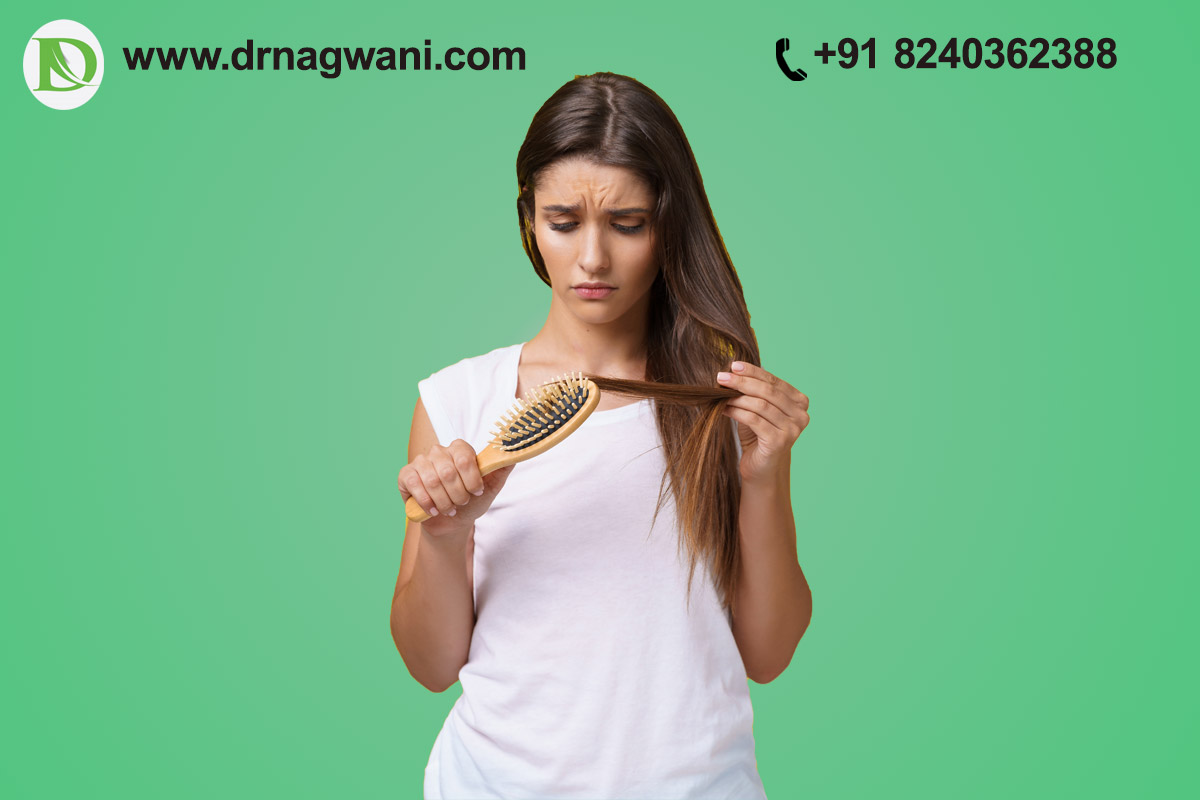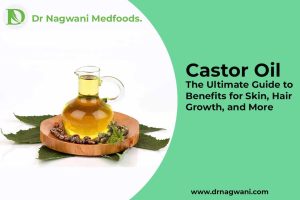Table of Contents
Introduction Natural Remedies for Hair Fall
Could it be said that you are worn out on finding strands of hair on your cushion or in the shower channel? Hair fall is a common concern that many of us face, impacting our confidence and overall well-being. In this blog, we embark on a journey to explore the world of natural remedies for hair fall. From DIY masks crafted from kitchen ingredients to herbal treatments backed by centuries of wisdom, we’ll delve into holistic approaches that promote hair health. Say goodbye to chemical-laden products and join us on a quest for lush locks using nature’s own solutions. Discover the power of natural remedies and regain control over your hair’s vitality and strength.
Common Causes of Hair Fall
A few variables add to hair fall, including hereditary qualities, hormonal changes, nourishing inadequacies, and stress. To develop an effective treatment, it is essential to identify the specific cause. Genetics play a role in determining hair health, while hormonal changes, often experienced during pregnancy or menopause, can lead to temporary hair loss. Nutritional deficiencies, especially in iron and vitamin D, can impact hair growth. Stress and lifestyle factors, such as poor diet and lack of sleep, also contribute significantly.
Understanding DIY Hair Masks
Embracing natural remedies for hair fall involves understanding the benefits of DIY masks. These masks, crafted from readily available ingredients, offer a chemical-free alternative to commercial products. Choosing ingredients based on individual hair types ensures a personalized approach. Before applying any mask, it’s crucial to conduct a patch test to avoid adverse reactions.
Top DIY Hair Masks for Hair Fall
Avocado and Banana Mask
This mask, rich in vitamins and natural oils, provides deep nourishment to the hair. Mash one avocado and one banana, apply the mixture to damp hair, and leave it on for 30 minutes before rinsing.
Aloe Vera and Coconut Oil Mask
Aloe vera’s soothing properties combined with the nourishing effects of coconut oil make this mask ideal for promoting hair health. Mix equal parts aloe vera gel and coconut oil, applying the blend to the scalp and hair. Leave it on for 45 minutes before washing.
Egg and Olive Oil Mask
This protein-packed mask strengthens hair and reduces breakage. Whisk one egg and mix it with two tablespoons of olive oil. Apply the mixture to the hair, focusing on the roots, and leave it on for 20 minutes before rinsing.
Herbal Treatments for Hair Fall
Incorporating herbs into hair care can be highly beneficial. Amla, or Indian gooseberry, is rich in vitamin C, promoting hair growth. Fenugreek seeds, when ground into a paste, strengthen hair and reduce dandruff. Hibiscus, known for its nourishing properties, can be used as a mask or added to hair oil.
Lifestyle Changes for Healthy Hair
Beyond external treatments, adopting a healthy lifestyle contributes to hair health. A balanced diet that includes protein, vitamins, and minerals supports hair growth. Regular exercise improves blood circulation, enhancing nutrient delivery to hair follicles. Establishing a proper hair care routine, including gentle washing and conditioning, prevents damage.
Hydration and Hair Fall
Proper hydration is essential for overall health, including hair health. Dehydration can lead to brittle hair and increased hair fall. In addition to consuming an adequate amount of water, DIY hydrating hair treatments using ingredients like honey and yogurt can boost moisture levels.
Stress Management Techniques
Stress is a significant contributor to hair fall. Incorporating stress management techniques, such as yoga and meditation, can positively impact hair health. Engaging in relaxation exercises and ensuring sufficient sleep also play crucial roles in reducing stress-related hair fall.
Seeking Professional Advice
While natural remedies are valuable, it’s essential to know when to seek professional advice. Persistent or severe hair fall may indicate underlying issues that require the expertise of a dermatologist or healthcare professional. Professional guidance ensures accurate diagnosis and tailored treatment plans.
Myths and Facts about Hair Fall
Myth: Shampooing Too Often Causes Hair Fall
Fact: Regular shampooing is fundamental for keeping a solid scalp. However, using harsh shampoos or shampooing excessively can strip the scalp of natural oils, leading to dryness. Opt for a mild shampoo and find a balance that suits your hair type.
Myth: Wearing Hats Causes Hair Fall
Fact: Wearing hats does not directly cause hair fall. However, wearing tight hats regularly might lead to traction alopecia, a condition where constant pulling damages hair follicles. Ensure your hats are not too tight, especially if worn for extended periods.
Myth: Cutting Hair Promotes Faster Growth
Fact: While regular haircuts are essential for maintaining healthy hair, they do not affect the rate of hair growth. Hair grows from the roots, and cutting the ends doesn’t influence the follicles in the scalp. Trimming prevents split ends, making hair appear healthier.
Myth: Frequent Brushing Prevents Hair Fall
Fact: Brushing your hair is essential for detangling and distributing natural oils. However, excessive brushing, especially when the hair is wet, can lead to breakage. Use a wide-toothed comb for wet hair and a brush with soft bristles for dry hair to minimize damage.
Myth: Coloring Causes Permanent Hair Loss
Fact: Temporary hair loss might occur after hair coloring due to chemical exposure, but it’s not permanent. Choosing quality hair dye and following proper application procedures can minimize damage. Opt for ammonia-free dyes and consider professional assistance for complex coloring.
Myth: Hair Fall Only Affects Older People
Fact: Hair fall can affect individuals of all ages. While it’s more common with aging due to hormonal changes, younger people can experience it too. Factors like stress, nutritional deficiencies, and genetics play roles in hair health at any age.
Myth: Frequent Hair Washing Increases Hair Fall
Fact: Washing hair regularly with a suitable shampoo is essential for maintaining a clean scalp. Not washing hair enough can lead to a buildup of oil and product residue, potentially causing issues. Find a balance based on your hair type and lifestyle.
Myth: Using Hair Products Leads to Hair Fall
Fact: Quality hair products, used in moderation, generally do not cause hair fall. However, using too much product or using products with harsh chemicals can lead to damage. Choose products suited to your hair type and be mindful of the ingredients.
Myth: Hormonal Changes Have No Impact on Hair Fall
Fact: Hormonal changes, especially during puberty, pregnancy, and menopause, can significantly impact hair health. These changes can lead to temporary hair loss or thinning. Understanding the hormonal shifts and addressing any deficiencies is crucial for maintaining healthy hair.
Myth: Only Men Experience Hair Fall
Fact: While male-pattern baldness is more common, women also experience hair fall. Causes may differ, including hormonal changes, pregnancy, and medical conditions. Hair loss is a universal concern that affects both genders.
Myth: Natural Remedies Always Work
Fact: While natural remedies can be effective for many, there’s no one-size-fits-all solution. Results vary based on individual factors. Consistency and patience are crucial when trying natural remedies, and professional advice should be sought if issues persist.
Myth: Stress Doesn’t Impact Hair Health
Fact: Chronic stress can lead to hair fall. Stress hormones can disrupt the hair growth cycle, causing more hair to enter the shedding phase. Managing stress through various techniques is essential for overall well-being, including hair health.
Tips for Consistent Results
Achieving consistent results with natural remedies requires commitment and patience. Regularity in treatment, patience in waiting for results, and the flexibility to adjust treatments based on individual feedback contribute to long-term success.
Recap of Key Points
In summarizing the natural remedies discussed, it’s crucial to emphasize the holistic approach to hair care. Addressing internal and external factors collectively contributes to healthier, more resilient hair.
Conclusion
In conclusion, natural remedies for hair fall offer a personalized and chemical-free approach to hair care. By understanding the causes of hair fall, exploring DIY masks and treatments, and making lifestyle adjustments, individuals can promote healthier hair. The journey to combat hair fall is unique for each person, and the key lies in consistency and patience.
Frequently Asked Question (FAQs)
Can natural remedies completely stop hair fall?
While natural remedies can significantly reduce hair fall, individual results may vary. Consistency is key to seeing long-term benefits.
How often should I use DIY hair masks?
It depends on your hair type and the specific mask. Generally, once a week is a good starting point, but adjust based on your hair’s response.
Are natural remedies for hair loss associated with any negative effects?
Natural remedies are generally safe, but it’s crucial to conduct patch tests to avoid adverse reactions. Consult a professional if you experience any issues.
Can stress really cause hair fall?
Yes, chronic stress can contribute to hair fall. Managing stress through various techniques can positively impact hair health.
Is professional advice necessary for addressing hair fall?
If hair fall persists or is severe, consulting a dermatologist or healthcare professional is recommended for a proper diagnosis and tailored treatment plan.



